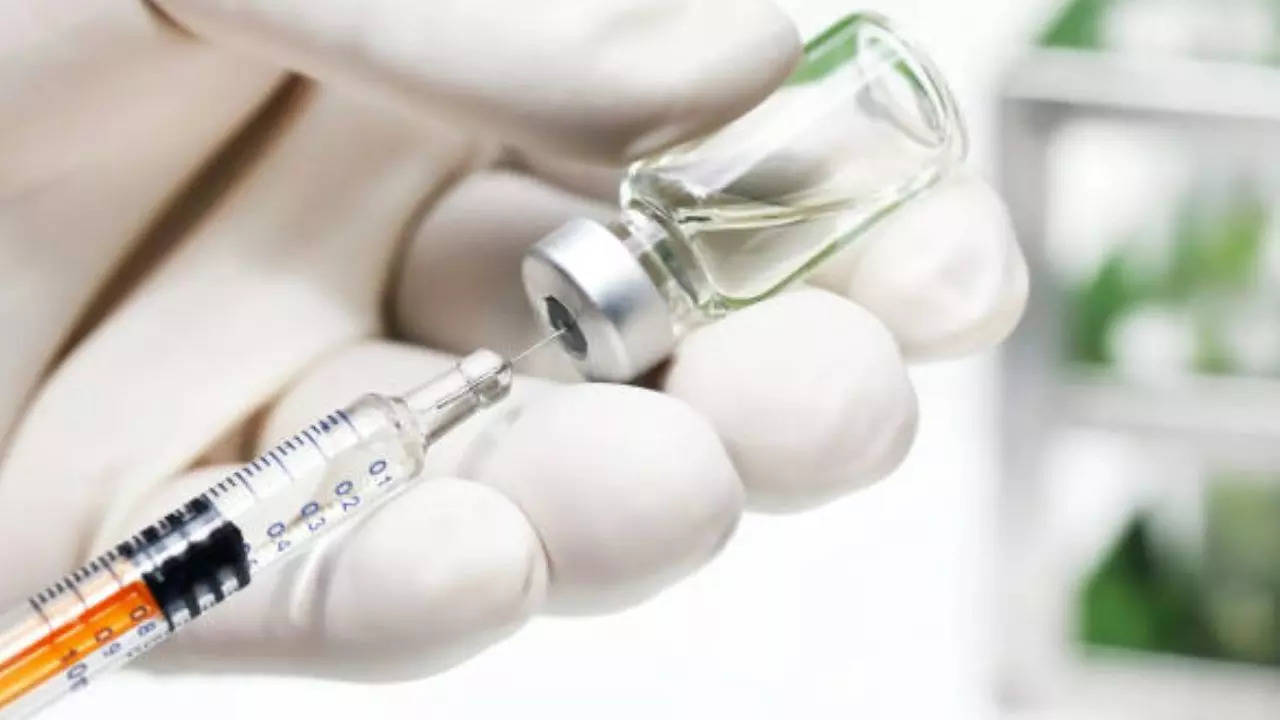-
news
-
Health
This new injection is 96 percent effective in protecting against HIV with just two doses in a year: Research
A new injectable drug, Sunlenka (lenacapavir), provides 96 percent protection against HIV with just two doses annually, outperforming daily oral PrEP drugs such as Truvada. Clinical trials show its high efficacy and improved compliance, providing hope for populations facing challenges with daily pills. FDA approval for preventive use is anticipated by 2025.

This new injection is 96 percent effective in protecting against HIV with just two doses a year: Research (Image credit: iStock)
People with an HIV-positive partner often face the difficult task of taking antiretroviral pills daily to avoid infection. However, recent progress HIV prevention This has led to the development of a game-changing injectable drug that can reduce this burden to a great extent. This innovative treatment, known as Sunlenka (lenacapavir), requires only two doses a year and boasts remarkable efficacy rates.
According to clinical trial results published in the New England Journal of Medicine, twice-yearly injections of Sunlenka reduce the risk of HIV infection by 96 percent. This level of effectiveness far exceeds current oral pre-exposure prophylaxis (PrEP) options such as Truvada. Lead researcher Dr. Colleen Kelly, professor of medicine at Emory University, expressed excitement about the trial’s results. “It’s incredible to see such a high level of efficacy – almost 100 percent – in an injection that people only have to take every six months,” he said. “This is a remarkable and profound advancement in medicine, especially for individuals whose conditions make it difficult to adhere to daily oral medications.”
Clinical trials showed that 99 percent of participants who received Sunlenka did not get HIV. Only two infections were reported among 2,179 participants who used the injection, while nine infections were reported among 1,086 people assigned to take Truvada. The results also indicated that adherence to the injection treatment was significantly higher than that of the daily pills, which can be ineffective if not taken consistently.
Dr. Kelly revealed the challenges associated with daily oral PrEP, noting that about half of people who start the regimen stop it within a year due to a variety of factors. “Having an effective injection that is needed only twice a year is very important for people who have trouble accessing health care or adhering to daily oral pills,” he said.
The populations most at risk for HIV often experience barriers to health care access and may struggle to maintain a consistent medication schedule. “We are not reaching everyone we should with our current HIV prevention measures, especially those most affected by HIV and health care disparities,” Dr. Kelly said. The introduction of injectable agents like Sanlenka represents a potential game changer for these individuals, providing them an effective means of remaining HIV-negative.
Sunlenka was approved by the US Food and Drug Administration (FDA) in December 2022 to treat people living with HIV, as an aid in infection management. However, these recent findings suggest that it may also work as a preventive measure for people without HIV. The trial data has been submitted to the FDA, and Dr. Kelly is optimistic about getting the drug approved for this indication by 2025.
Dr. Carlos del Rio, chair of medicine at Emory University, emphasized the importance of long-acting antiretrovirals for people unable to take oral medications. “The challenge now is to make these tools available and accessible in an equitable way – only then will we see dramatic reductions in new HIV infections, both locally and globally,” he said.
The development of Sanlenka marks a major advance in HIV prevention, providing hope for people at risk and changing the landscape of HIV care. With its twice-yearly dosing and high efficacy, this injectable treatment may help address critical gaps in HIV prevention and provide a more manageable option for people facing challenges with daily medication adherence.
Get the latest news live on Times Now with breaking news and top headlines from around the world.


